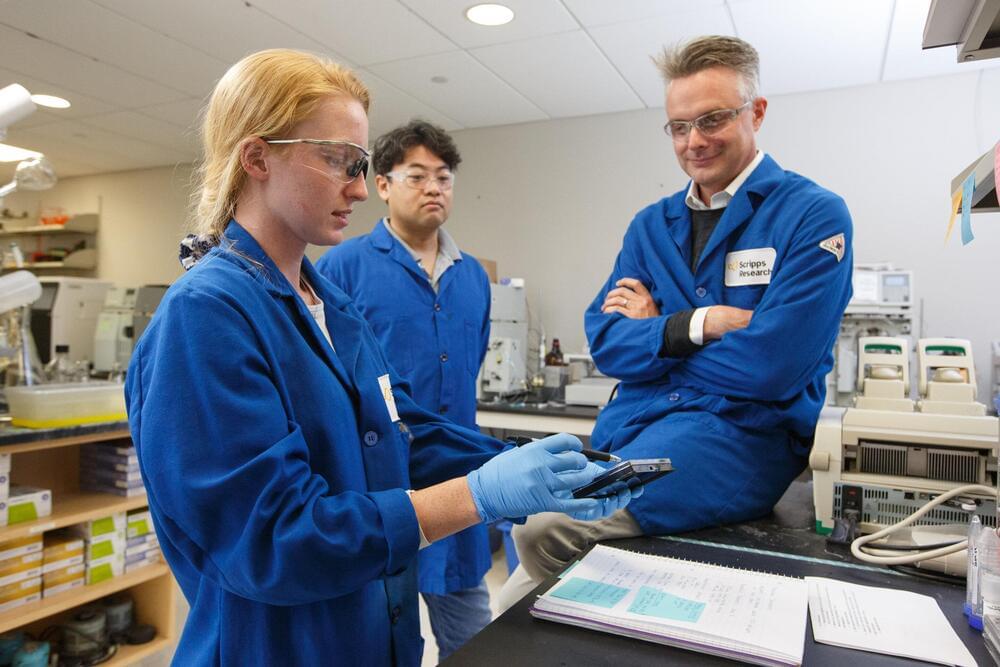Scientists at University of Florida (UF) Scripps Biomedical Research have developed a potential medicine for a leading cause of ALS and dementia that works by eliminating disease-causing segments of RNA. The compound restored the health of neurons in the lab and rescued mice with the disease.
The potential medication is described this week in the scientific journal Proceedings of the National Academy of Sciences. It is designed to be taken as a pill or an injection, said the lead inventor, professor Matthew Disney, Ph.D., chair of the UF Scripps chemistry department. Importantly, experiments showed that the compound is small enough to cross the blood-brain barrier, a hurdle other approaches have failed to clear, he said.
Amyotrophic lateral sclerosis, or ALS, progressively destroys neurons that control muscles, leading to worsening muscle loss and eventually death. The mutation, a leading cause of inherited ALS, is referred to as “C9 open reading frame 72,” or C9orf72. This mutation also leads to one form of frontotemporal dementia, a brain disease that causes the brain’s frontal and temporal lobes to shrink, resulting in changes in personality, behavior and speech, ultimately resulting in death.










Leave a reply